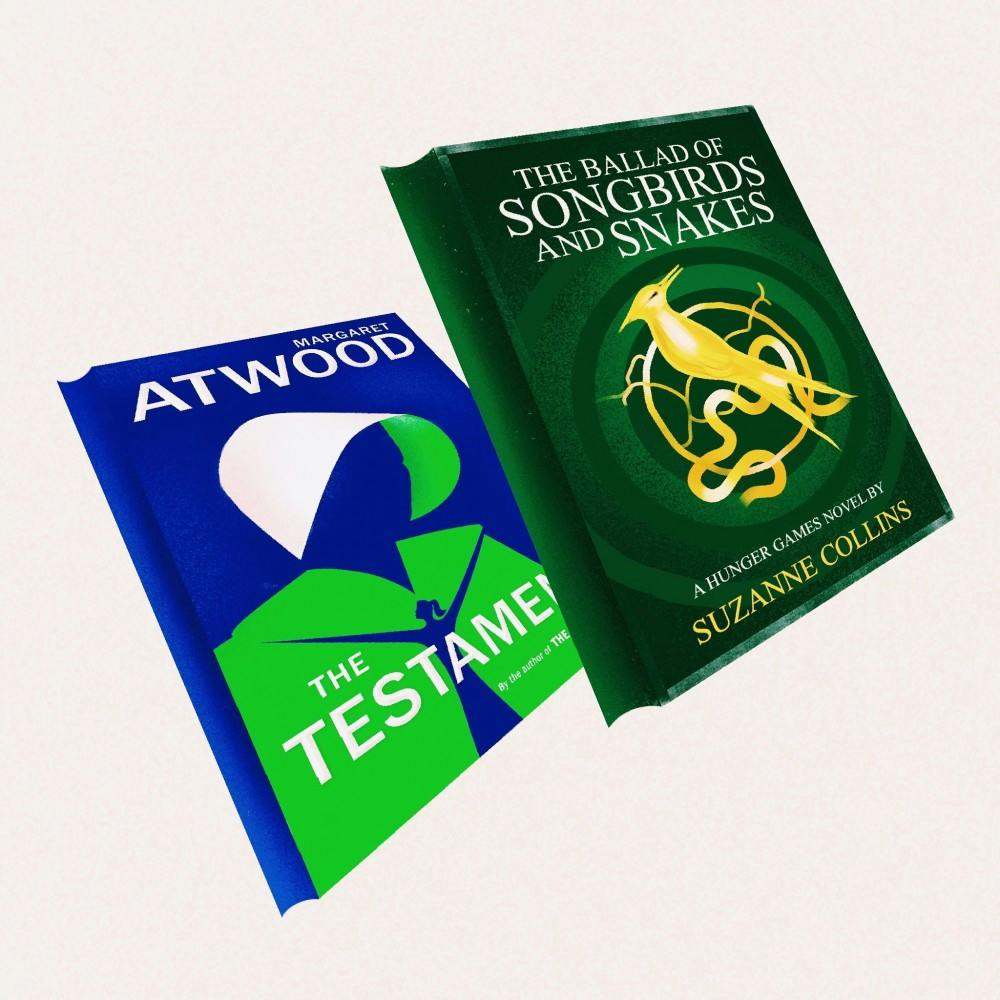Two well–known dystopian writers have come back after long hiatuses to publish additions to their most celebrated works. Both Margaret Atwood and Suzanne Collins have returned to the literary world during a time when social issues such as climate disaster and women’s rights are at the forefront of public consciousness.
Margaret Atwood, who published the critically acclaimed novel The Handmaid’s Tale in 1985, returned with a sequel titled The Testaments this past September. The Testaments achieved critical status as a New York Times Bestseller and a winner of the Booker Prize.
The Testaments, which takes place 15 years after the events of the first novel, employs Aunt Lydia as one of its three protagonists. Lydia is one of the most despicable characters in The Handmaid’s Tale, espousing the oppressive ideals of Gilead and ruling over the Handmaids with brutally efficient violence; in The Testaments, she becomes a manipulative, ruthless force for rebellion, doing whatever it takes to bring Gilead down. The novel asks the reader if they can—or even if they should—forgive Lydia for her vile, immoral actions, despite her crucial role in defeating Gilead. It shows us that under a system that oppresses women, all women—even those with relative power like the Aunts—are oppressed. However, in The Testaments, Atwood shows the power of women working together to overcome their suppression. She inspires a feeling of hope in the reader, something that seems almost impossible in the world of Gilead.
There are moments of quiet rebellion in The Handmaid’s Tale, but the stifling oppression of Gilead prevents the protagonist, Offred, from doing much more than simply reflecting on her situation. In contrast, rebellion is a huge part of The Testaments, giving it a more active—though no less poignant—tone.
The Handmaid’s Tale has seen a resurgence in popularity since the 2016 election, perhaps also due to the success of its television adaptation. With women’s rights—specifically reproductive rights—under threat in recent years, parallels between the contemporary United States and Gilead have become much more obvious. Women across the world started donning the handmaid’s outfit: red dresses and white bonnets, for political protests. In 2018, these outfits were seen in protests against Mike Pence, Donald Trump, and Brett Kavanaugh, as well as state–level and global legislature limiting reproductive rights. The Handmaid’s Tale also frames Gilead as the result of a nuclear disaster event, something that feels too similar to the climate disaster we're all facing. Atwood has recognized that the novel seems more relevant now than it did even when it was published.
The Handmaid’s Tale stuck with me because of its ambiguous ending, and, in some way, The Testaments loses some of that original staying power by giving its readers a hopeful ending. However, it may be the very thing we need in a time when so much can seem hopeless. There are times when The Testaments is difficult to read—with its graphic depictions of stifling oppression. But, ultimately, it leaves us with a feeling that things can get better. At the end, Gilead is restored to a more constitutional version of the United States.
Similarly, Suzanne Collins is returning with a prequel to The Hunger Games series, which emerged as a critical and commercial behemoth of dystopian, young–adult fiction. The Hunger Games—though it's inspired dozens of mediocre copycats—is an original, harrowing story of a dystopian society that controls its people by murdering its children. It's been ten years since the first book in the trilogy was released. While not as long of a gap as that between Atwood’s novels, it's still notable that Collins has decided to come back after all this time.
The prequel novel, titled “The Ballad of Songbirds and Snakes,” is slotted for release in May 2020. It will focus on the districts’ rebellion against the Capitol 64 years before the events of The Hunger Games trilogy; namely, how the Capitol crushed the rebellion and instated the Hunger Games as a way to prevent it from ever happening again. It's essentially a novel about how Panem, as we see it through Katniss’ eyes, came to be. In this way, Collins has essentially taken the opposite track to Atwood’s in The Testaments. She is now interested in showing how such dystopias come to be—an equally resonant message during a time when we seem to be moments away from tipping into one.
It's no coincidence that both of these authors have returned with additions to their extremely popular dystopian works. We are clearly at a tipping point in history and society—and it seems like both Atwood and Collins are trying their best to comment on the world today using the equally beloved and horrifying worlds they created years ago.

